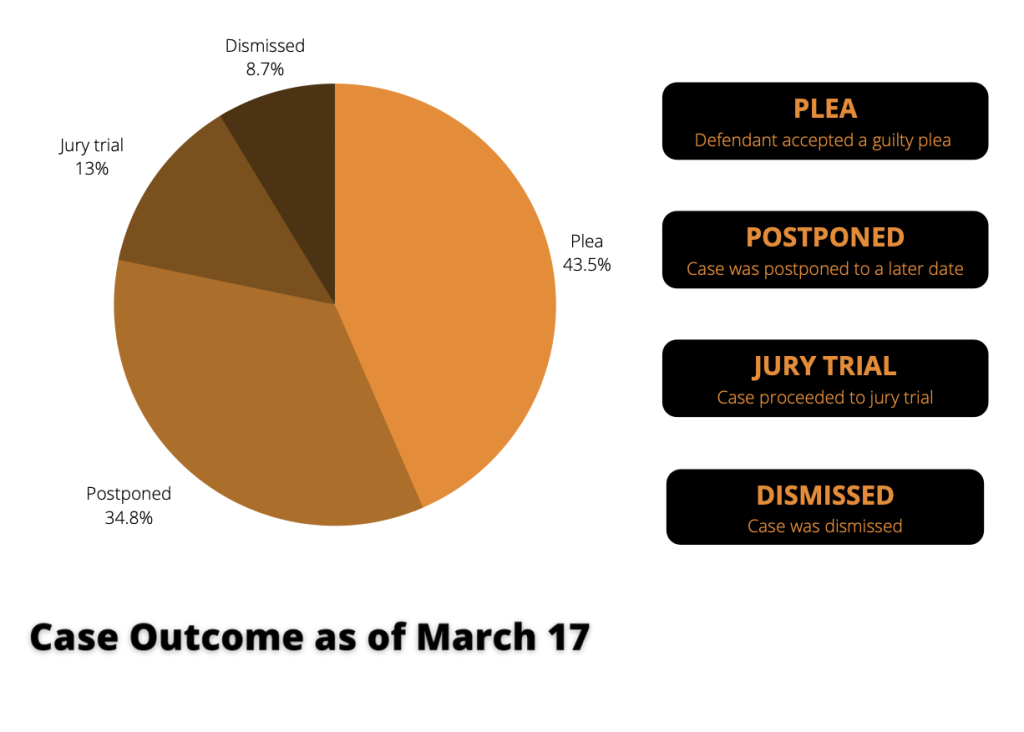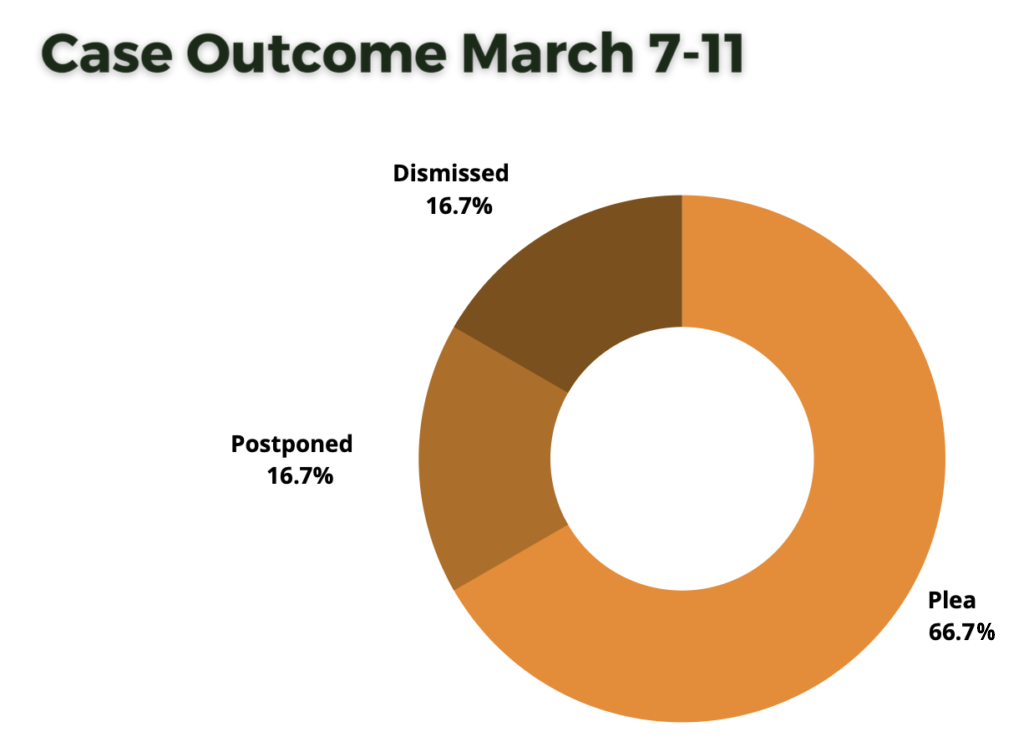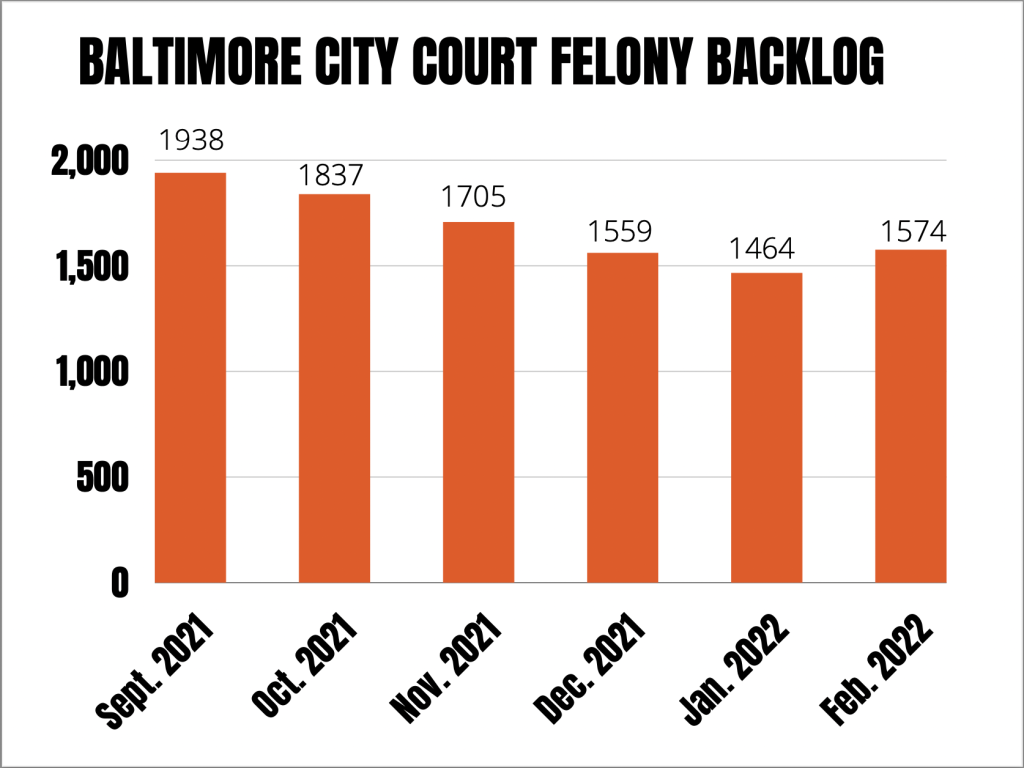After a two-month hiatus in early 2022, Baltimore City Circuit Court resumed jury trials on March 7, with 12 homicide and non-fatal shooting trials scheduled throughout the week. Yet, only one case, for a non-fatal shooting, actually made it through the jury selection process. Then, on the second day of trial, it was dismissed due to lack of evidence.
The remaining trials were over before they even began.
On March 8, defense attorney Warren Brown represented homicide defendant Tashonda Childs, 38, whose case was expected to begin jury selection. Instead, Childs accepted a plea of 10 years for conspiracy to first-degree murder after having rejected a plea offer of life, suspending all but 50 years, for first-degree murder last October.
“Since the pandemic, there have been a lot of better offers, especially initially when they were trying to clean the jails out. [The court] calls them, ‘COVID offers,’” said defense attorney Warren Brown. “You have all these new serious cases [involving homicide and non-fatal shootings] coming in and [the court] is trying to make room for them. If they’re making that type of offer and it’s a generous offer, you take it.”
Brown said Childs was part of “a cooperation package” as she was not the shooter, who is alleged to be her co-defendant, Sean Braxton-Carter. Carter, 33, was offered a plea of life, suspending all but 60 years, for first-degree murder—which was also rejected—and is currently scheduled for reception court on April 25, according to the Maryland Judiciary website.
“If [defendants] plead out on serious cases, then it must be a good offer,” Brown said. “Most folks are not going to plead their case out because the longer the case takes to go to trial, the better the state’s case deteriorates.”
As of March 17, approximately 10 out of 23 homicide and non-fatal shooting cases that were scheduled for jury trials during that time period have ended with guilty pleas. Only three cases—all homicides—proceeded to trial. About one-third of the cases were postponed, while an additional two cases were dismissed.

According to Baltimore Witness’ data, almost 67 percent of cases scheduled for jury trials between March 7-March 11 ended with guilty pleas, four of which involved homicides. Two attempted homicide defendants also accepted a guilty plea in addition to two non-fatal shooting defendants.

With a backlog count of nearly 1,600 felony cases in Baltimore City Circuit Court as of March 1, a former public defender turned private defense attorney said many of these cases have to be resolved short of trial as it is impossible to try every single case.

“I see a lot of pleas being worked out with violent cases because the cases are not as strong as they once were. A lot of these circumstantial cases with no witnesses or video have a lot of moving pieces that you can’t always put together on the drop of a dime,” he said, adding that violent cases can often have anywhere from five to 20 witnesses.
“How hard would it be to get 20 witnesses available on one day, five or six different times a year because things keep getting postponed?”
Baltimore Witness data shows approximately 34 non-fatal shooting and homicide jury trials were postponed between Dec. 29, 2021 and March 6 following Chief Judge Joseph M. Getty’s administrative order limiting in-person proceedings, including the postponement of all jury trials.
On the other hand, the attorney said, there are also cases with only two witnesses, such as an eyewitness and a victim who survived, with the latter possibly having positively identified the suspect.
“The victim already knows who did it, so the attorney is going to put the pieces together and you let justice fall where justice falls,” he said. “Whether my client is sitting there for 12 months or 24 months, the stats show that the longer you have to wait to go to trial, the better off you are in some particular cases.”
The Baltimore City State’s Attorney’s Office did not respond to Baltimore Witness’ inquiry for comment.
While some defendants’ family members have raised concerns of plea coercion, all claims are currently unsubstantiated.


